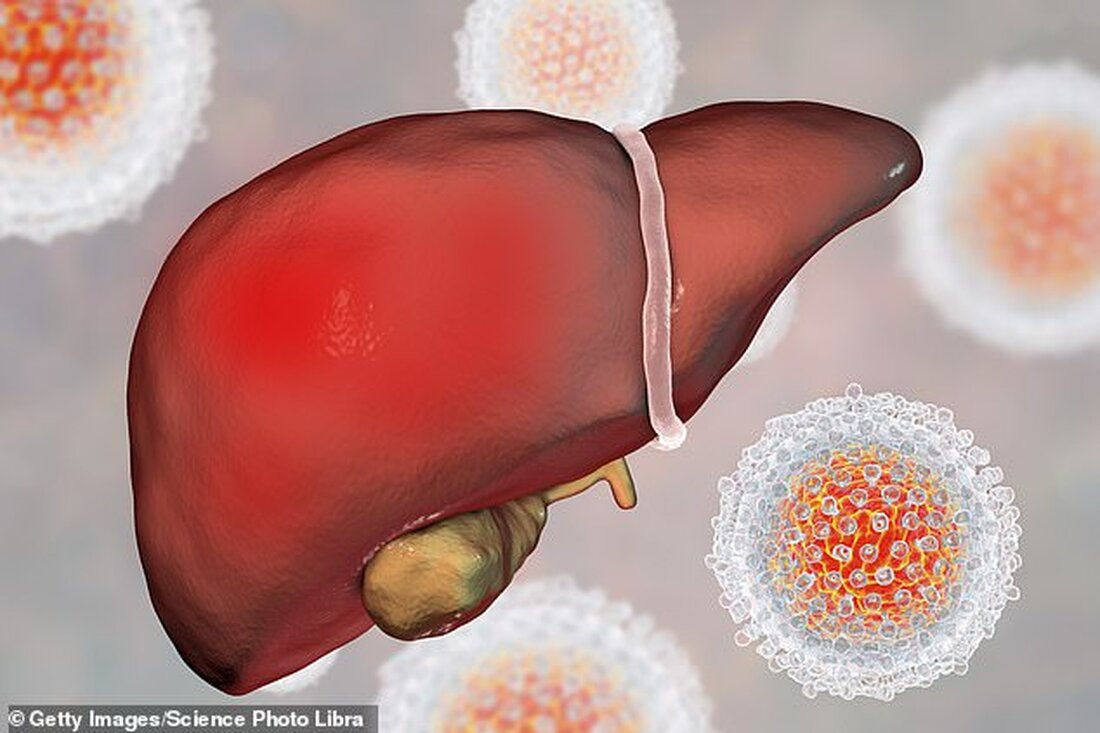Livers never live longer than three years - even when someone reaches 80 - because the cells are constantly renewing themselves, a study has found.
German scientists said their study would help improve understanding of age-related diseases of the organ, such as fatty liver disease and cirrhosis.
It is the first time that the cells of this organ - the only one that can regenerate itself if damaged - have been aged by scientists.
The human body replaces billions of cells every day, with those lining the intestines having the shortest lifespan of just four days. But others like those in the muscles can live for 70 years, while those in the brain can survive as long as a human lives.

Cells in the liver last about three years before being replaced, scientists say. Pictured above is the organ (red area) along with the gallbladder (yellow), which stores bile
In the study published earlier this week in the journal Cell systems – Researchers at the Technical University of Dresden, 100 miles from Berlin, examined liver samples from 32 patients between the ages of 20 and 84.
They had 32 samples from autopsies of deceased patients, 12 from biopsies and nine that were a type of cell taken from the liver.
To age the sample, the researchers used a method that relies on measuring the amount of carbon in cells from the atmosphere.
Carbon is incorporated into plants through photosynthesis and then enters people when they eat vegetables.
In the 1950s, thanks to above-ground atomic bomb testing, there were enormous - although not dangerous - amounts of carbon in the environment, which was reflected in cells.
But after these were banned, levels gradually began to decline.
The scientists used this decline to estimate the age of the cells.
The study found that liver cells live on average for about a year and never longer than three years.
But up to 20 percent - scientifically called diploid hepatocytes because they contain extra genes - had lifespans of up to ten years.
These cells were more common in older patients, suggesting they may play a role in ensuring the organ continues to replenish itself, according to the scientists.
Dr. Olaf Bergmann, the geneticist who led the study, said: "Whether you are 20 or 84, your liver stays on average just under three years old."
He added: "It is important to establish these features of cell renewal in the adult liver, particularly to gain a better understanding of age-related diseases and liver cancer."
Despite its ability to regenerate, there is increasing evidence that the liver still ages over time due to mutations in cellular genes.
This can lead to problems with normal cell function, triggering low-grade inflammation in the organ, a risk factor for several diseases, reports a 2019 study in Computational and Structural Biotechnology.
The human body replaces about 330 billion cells every day — or one percent of the total, according to a 2016 study PLOS biology.
It also showed that some cells only live for a few days, while others can last a lifetime.
The sperm cell is believed to be the shortest-lived cell, being stored on average for only three days before being replaced.

 Suche
Suche
 Mein Konto
Mein Konto

